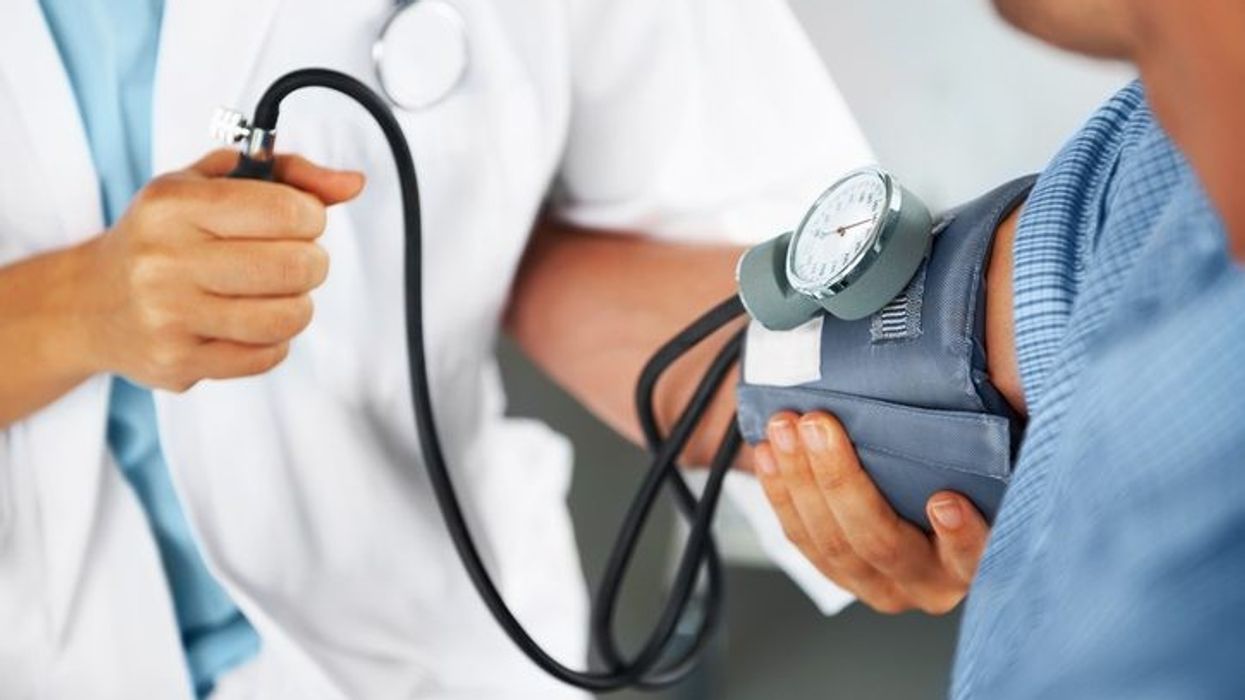A recent report by WHO reveals that approximately 4 out of every 5 individuals with hypertension receive inadequate treatment. The report on the dire consequences of hypertension suggests that if countries scaled up treatment coverage, approximately 76 million hypertension-related deaths could be prevented between now and 2050.
The improved coverage could further prevent 120 million strokes, 79 million heart attacks, and 17 million cases of heart failure in the same time period, the report said.
Affecting 1 in 3 adults worldwide, hypertension, or high blood pressure, is often referred to as a "silent killer". "This is because) its symptoms are often unnoticeable until it has already caused significant damage to the heart, blood vessels, and other organs," said Ajay Kaul, chairman of Cardiac Sciences, Fortis Hospital Noida, in the Indian state of Uttar Pradesh.
The report said that people living with hypertension - blood pressure of 140/90 mmHg or higher or taking medication for hypertension - doubled between 1990 and 2019, from 650 million to 1.3 billion.
It went on to say that nearly half of people with hypertension globally are currently unaware of their condition, with more than three-quarters of adults with hypertension living in low- and middle-income countries.
"People may have high blood pressure for years without knowing it, which can lead to serious health complications such as heart disease, stroke, kidney damage, and more," said Kaul.
"It catches people unawares and has proven to be one of the most common causes of mortality and morbidity in India and worldwide," said Viveka Kumar, principal director & chief of Cath Labs, Pan Max - Cardiac Sciences.
Salt intake is an important factor that heightens hypertension risk, even as lack of physical activity, family history of hypertension, external stress, and obesity, along with high alcohol consumption, are major contributors towards developing the condition, said the cardiologists.
"A diet high in sodium (salt), saturated fats, and low in potassium can contribute to hypertension," said Kaul.
"Indian foods and food habits include high amount of salt, almost 10 times higher than that recommended by WHO," said Kumar.
In a fact-sheet titled "Salt reduction" and issued in September, 2023, WHO has recommended less than 2000 mg/day of sodium or less than 5 g/day salt - just under a teaspoon.
The prevention, early detection and effective management of hypertension are among the most cost-effective interventions in health care and should be prioritised by countries as part of their national health benefit package offered at a primary care level, the report said.
The economic benefits of improved hypertension treatment programmes outweigh the costs by about 18 to 1, it said.
Launched in November, 2017, the Indian Hypertension Control Initiative (IHCI) is a 5-year initiative involving the Ministry of Health & Family Welfare, Indian Council of Medical Research, state governments, and WHO-India, according to IHCI's website.
The IHCI aims to achieve the government's objective of reducing premature mortality from non-communicable diseases, including the prevalence of high BP, by 25 per cent by 2025 through evidence-based strategies to strengthen the building blocks of hypertension management and control, the website says.
On an individual's level, one can monitor for hypertension signs that include severe, sudden headaches, shortness of breath, exertion, or fatigue, along with chest pain and irregular heartbeat, the doctors said.
They also recommended a regular blood pressure check.
"The idea is to check your blood pressure regularly especially after the age of 40 years and before 40 if any of the above symptoms are present and during hospital visit for any other reason," said Kumar.
The report acknowledged the efforts of more than 40 low-and middle-income countries, including India, Bangladesh, Cuba and Sri Lanka, which have strengthened their hypertension care, enrolling more than 17 million people into treatment programmes.
It further asserted that "sustained, systematic national hypertension control programmes can succeed", citing the examples of Canada and South Korea, which surpassed the 50 per cent mark for blood pressure control in adults living with hypertension through such programmes.
"Hypertension can be controlled effectively with simple, low-cost medication regimens, and yet only about one in five people with hypertension have controlled it," said Tedros Adhanom Ghebreyesus, WHO Director-General.
"Strengthening hypertension control must be part of every country's journey towards universal health coverage, based on well-functioning, equitable and resilient health systems, built on a foundation of primary health care," said Ghebreyesus.
The report is being launched during the 78th Session of the United Nations General Assembly which addresses progress for the Sustainable Development Goals.
(PTI)




